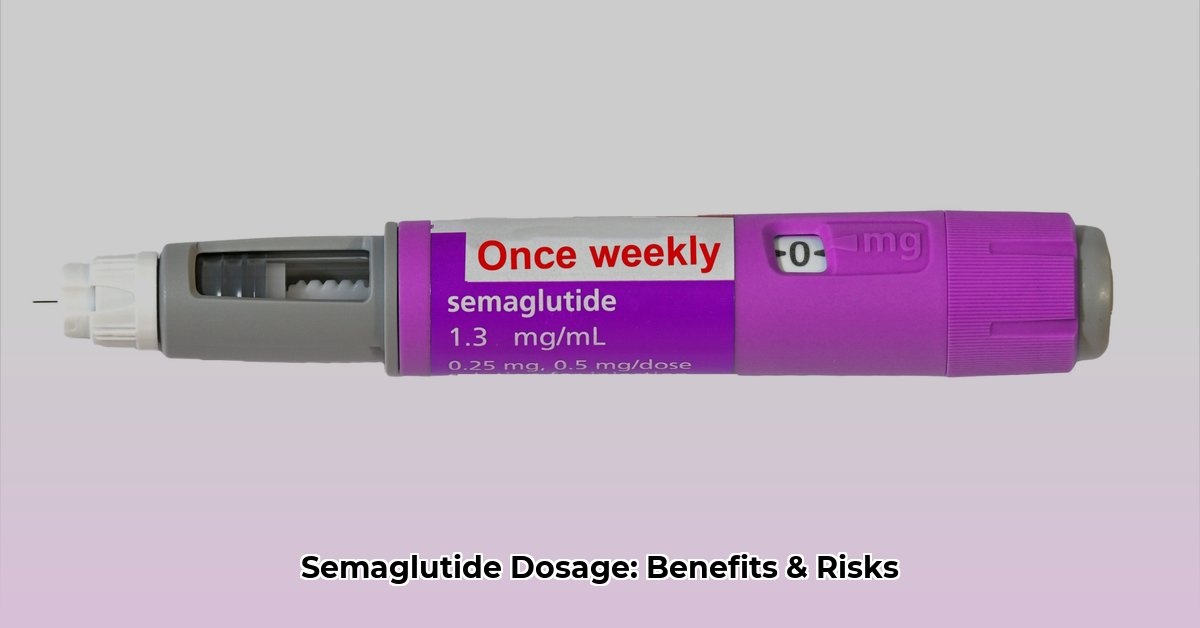Is Compounded Semaglutide Right for You? Unraveling the Facts
Semaglutide has garnered significant attention for its potential in weight management and type 2 diabetes treatment. Compounded semaglutide, a customized version, may seem like an attractive option. However, it’s crucial to understand the complexities and potential risks before making a decision. This guide provides a comprehensive overview of compounded semaglutide, including dosage considerations, safety concerns, and crucial questions to discuss with your doctor.
Debunking the Myths: Compounded vs. FDA-Approved Semaglutide
A common misconception is that compounded semaglutide is a simple, cheaper alternative to FDA-approved versions like Ozempic and Wegovy. While cost may be a factor, the differences extend far beyond price. FDA-approved semaglutide undergoes rigorous testing and quality control, ensuring safety and efficacy. Compounded semaglutide lacks this crucial oversight, introducing potential risks related to purity, strength, and sterility.
Understanding Compounded Semaglutide Dosage: A Cautious Approach
While you might find compounded semaglutide dosage charts online, a universal chart isn’t feasible due to the customized nature of compounding. These online resources should not replace personalized medical advice. A healthcare professional will determine the appropriate dosage based on your individual health profile. The following table illustrates potential starting doses and titration schedules. Remember, these are examples only:
| Indication | Concentration | Example Starting Dose | Example Titration Schedule | Example Maintenance Dose |
|---|---|---|---|---|
| Type 2 Diabetes | 1 mg/mL | 0.25 mL (0.25 mg) | Increase by 0.25 mL every 4 weeks | 0.5 mL to 1.0 mL weekly (0.5 mg to 1 mg) |
| Weight Loss | 2 mg/mL | 0.25 mL (0.5 mg) | Increase by 0.5 mL every 4 weeks | Up to 1.2 mL weekly (2.4 mg) |
Current research suggests individual responses to semaglutide can vary, influencing the final dosage and titration schedule.
Prioritizing Safety: Consulting Your Doctor
If you’re considering compounded semaglutide, consulting your doctor is paramount. They can assess your health, discuss all available treatment options (including FDA-approved semaglutide), and create a personalized plan if compounded semaglutide is deemed appropriate. Open communication about potential side effects and ongoing monitoring is crucial for safe and effective treatment.
Weighing the Risks and Benefits: An Informed Perspective
Like any medication, semaglutide carries potential benefits and risks.
Potential Benefits:
- Weight management: May assist with weight loss by affecting appetite and promoting fullness.
- Improved blood sugar control: May help regulate blood sugar levels in individuals with type 2 diabetes.
Potential Risks:
- Gastrointestinal issues: Nausea, vomiting, diarrhea are possible.
- Gallbladder problems: Though rare, some studies have suggested a link between GLP-1 receptor agonists and gallbladder issues. More research is needed.
- Pancreatitis (inflammation of the pancreas): A rare but serious potential risk.
- Thyroid C-cell tumors: Studies in rodents have shown an increased risk, but the relevance to humans is unclear. This risk warrants discussion with your physician.
The lack of standardized manufacturing processes for compounded semaglutide adds another layer of risk. Variations in composition could impact effectiveness and safety. Choosing a reputable compounding pharmacy, ideally one recommended by your physician, is essential.
The Importance of FDA Approval: Why It Matters
FDA approval provides assurance that a medication has met rigorous standards for safety, purity, and efficacy. Compounded semaglutide bypasses this process. While compounding can offer dosage flexibility, this comes at the cost of increased uncertainty regarding the medication’s quality and potential risks.
Making Informed Decisions: Your Health, Your Choice
The decision to use compounded semaglutide is a personal one. This article provides information, but it should not replace professional medical advice. Discuss your options with your doctor. They can provide personalized guidance and address any questions or concerns you may have.
“Disclaimer: This article is for informational purposes only and doesn’t substitute professional medical advice. Always consult your healthcare provider before starting any new medication.”
- Best Mindfulness Books for Anxiety, Sleep, and Daily Peace - January 29, 2026
- Books On Mindfulness For A Happier, More Present Life - January 28, 2026
- Essential Meditation Books for Beginners and Experienced Practitioners - January 27, 2026
















